Ajinomoto drives its Kamphaeng Phet Factory as the greenest factory model for sustainable environment through eco-friendly management to become a low-carbon business
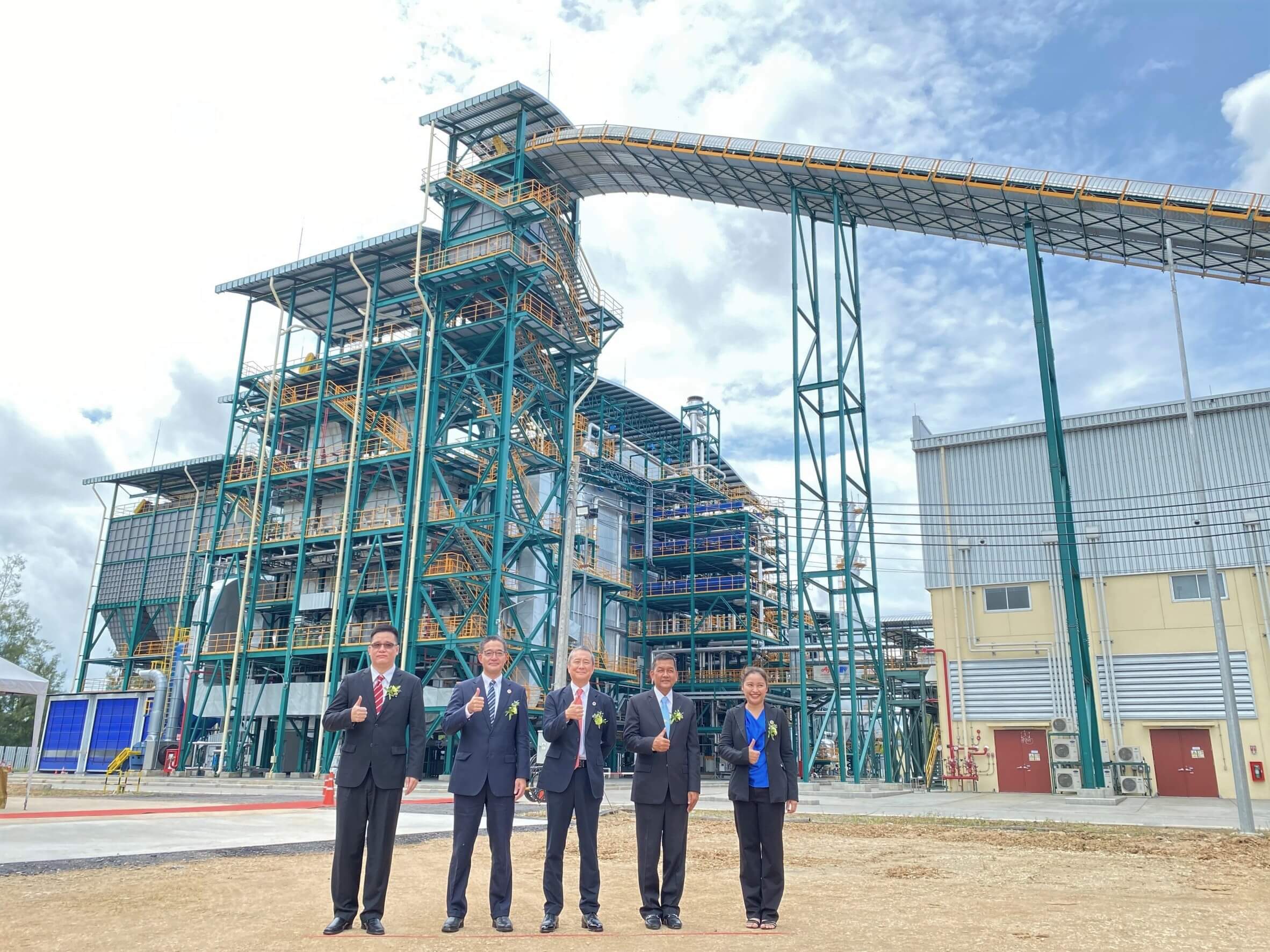
Ajinomoto gears up a strategy to reduce global warming by investing a budget worth 1,500 million baht in the construction of the "Biomass Cogeneration Power Plant", aiming to produce electricity from alternative and renewable energy sources to reduce the use of electricity from energy sources that cause environmental impacts. To respond to the Group’s commitment in 2030 to reducing our environmental impact by 50% and to becoming "Carbon Neutrality" with an effort to achieve Net-zero Greenhouse Gas Emissions by 2050, the Kamphaeng Phet Factory, a huge production base of AJI-NO-MOTO® MSG and AJITIDE I+G® products, was piloted as an exemplary the "Greenest Factory" of the Ajinomoto Group of companies in Thailand.
The official opening ceremony of the "Biomass Cogeneration Power Plant" was recently held and presided over by Mr. Ichiro Sakakura, President of Ajinomoto Co., (Thailand) Ltd., honorably attended by Mr. Chawalit Sang-uthai, Provincial Governor of Kamphaeng Phet, together with Dr. Orathai Pongruktham, Technical Advisor of Thailand Environment Institute and Secretariat of Thailand Business Council for Sustainable Development (TBCSD), Mr. Rongphet Bunchuaidee, Deputy Executive Director, Thailand Greenhouse Gas Management Organization (Public Organization),
Mr. Ichiro Sakakura said that "the Ajinomoto Group is striving to work for climate resilience by conducting business in line with the Bio-Circular-Green Economy concept to reduce environmental impacts, starting from the procurement of raw materials, the production of products, as well as the development of eco-friendly technology, including actions to reduce greenhouse gas emissions, alternative or renewable energy usage, waste management, and efficient use of water resources. In 2001, the company established FD Green (Thailand) Co., Ltd as the first "Green Business Model" of the Group of Companies in Thailand to manage the "Co-products" derived from the MSG production, which were developed into many agricultural products. The company also continuously invested in developing advanced technologies to support CO2 emission reduction, such as implementing "biomass boiler technology" that uses rice husks as the biomass fuel to generate the steam for the production process, which helps reduce the fuel oil usage, installing a "solar rooftop" inside the factory, etc., resulting in lower CO2 emissions of approximately 130,000 tons a year. In addition, the company has invested a budget worth 1,500 million baht to construct the "Biomass Cogeneration Power Plant", a project that follows the Clean Development Mechanism with a capacity of 9.9 MW that has already started producing electricity since last August. This will additionally support reducing CO2 emissions by 50,000 tons a year, which enables us a reduction of CO2 emissions by 180,000 tons in total per a year, or the equivalent of carbon dioxide absorption by over 20 million trees.
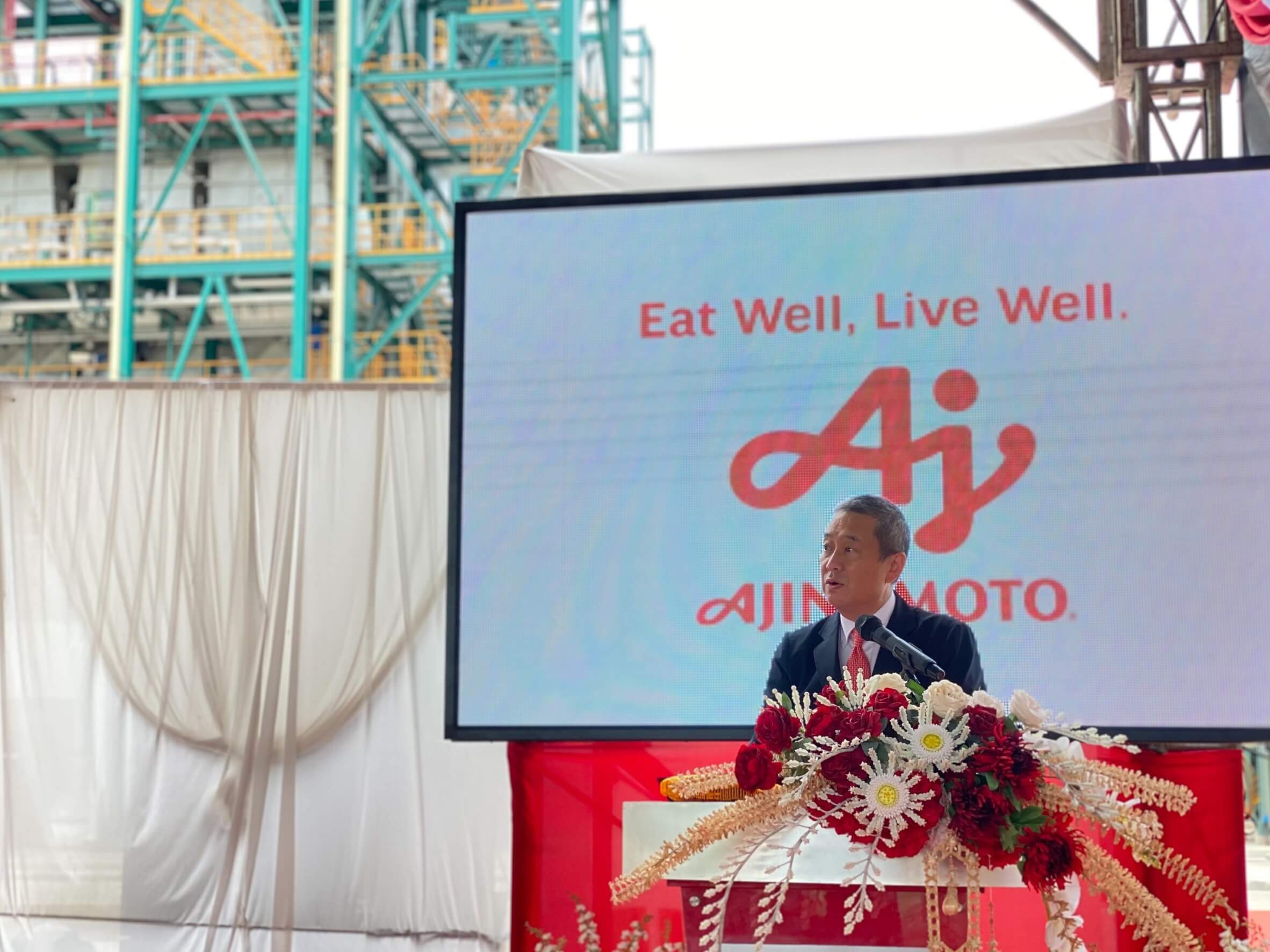
Mr. Takumi Kazarimoto, Vice President of Ajinomoto Co., (Thailand) Ltd. added that “the operation of this Biomass Cogeneration Power Plant allows us additionally reduce greenhouse gas emission by 40% compared to year 2018. Besides, every Ajinomoto’s factory and business establishment also strictly adhere to the policies and practices on environmental conservation, such as maximizing the use of resources in accordance with the 3R principle (Reduce, Reuse, Recycle), including the management of waste and waste water treatment by using modern technology, which results in a higher quality outcome than the standard required by law. The Ajinomoto Group aims to become a "solution-providing group of companies for food and health issues" by working to reduce environmental impacts by following "The Ajinomoto Group Creating Shared Value (ASV)" as a conceptual framework for the Ajinomoto Group's work worldwide.
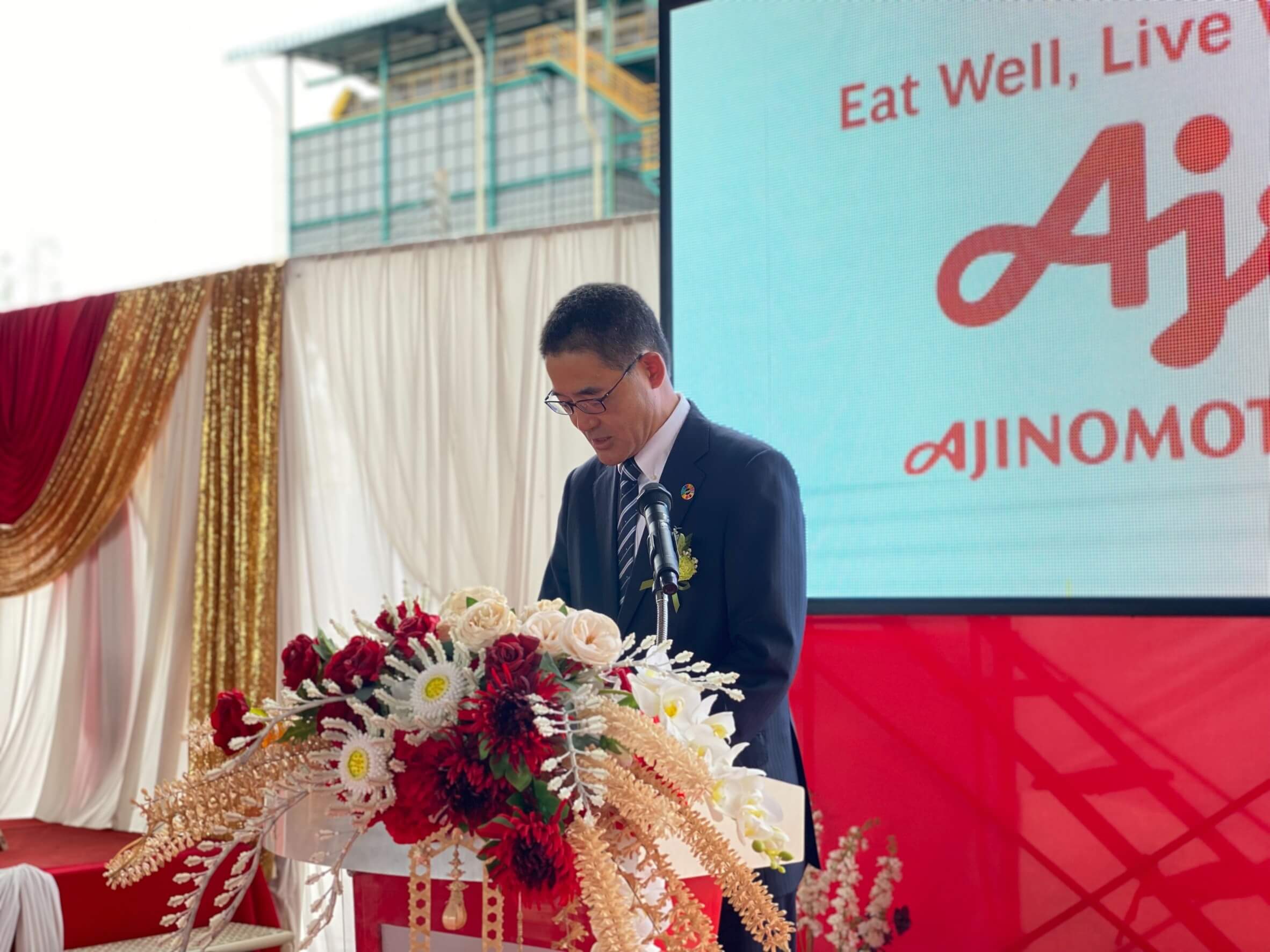
Dr. Orathai Pongruktham, Technical Advisor of Thailand Environment Institute and Secretariat of Thailand Business Council for Sustainable (TBCSD) stated that "TBCSD was established by the collaboration of organizations that are leaders in sustainable development. Ajinomoto became a list member in 2021 and has been driving its business along with social responsibility. This Biomass Cogeneration Power Plant will be one of the key factors to support the national agenda in line with the Bio-Circular-Green Economy (BCG model) that will lead Thailand towards sustainability goals.”
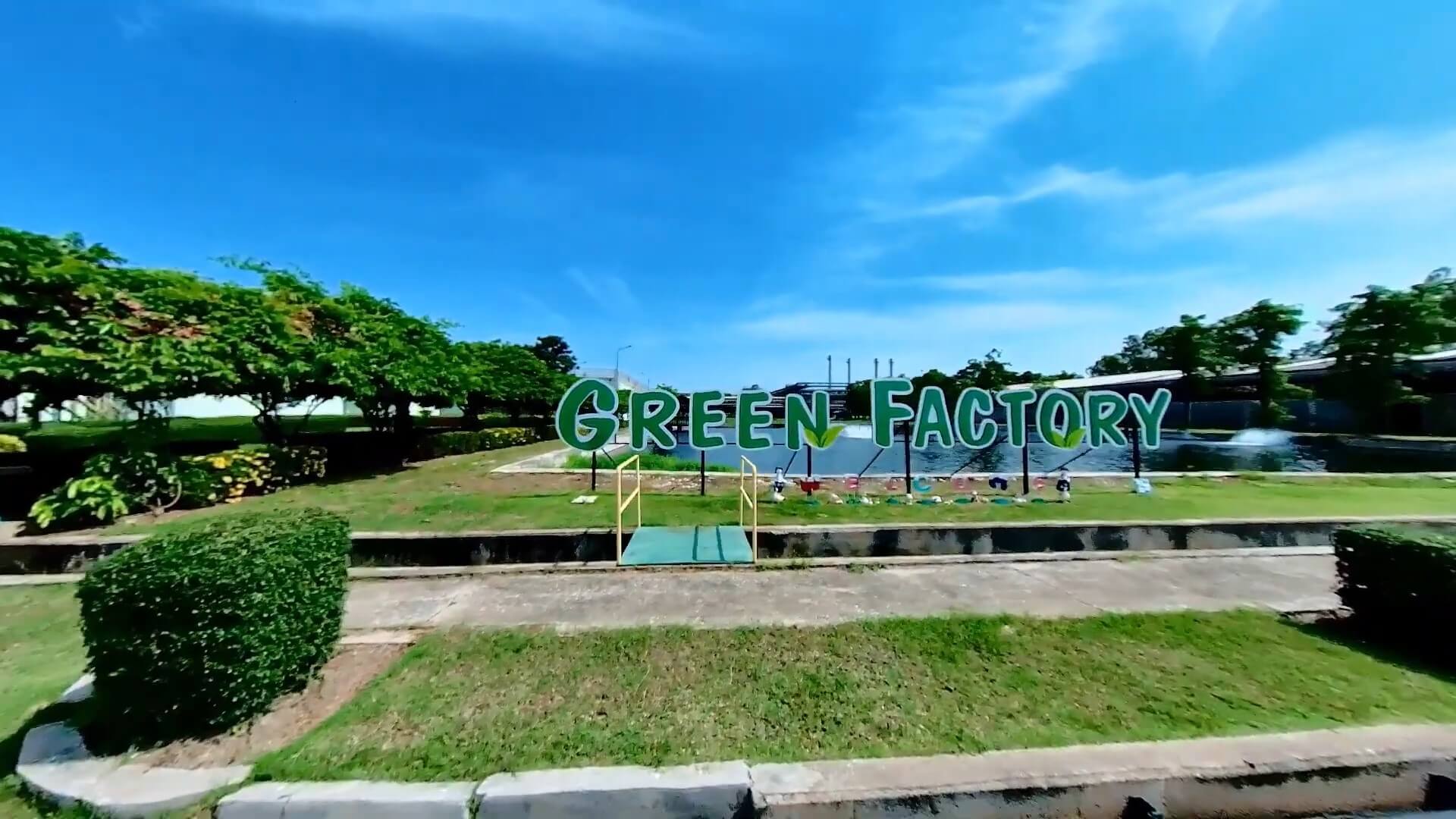
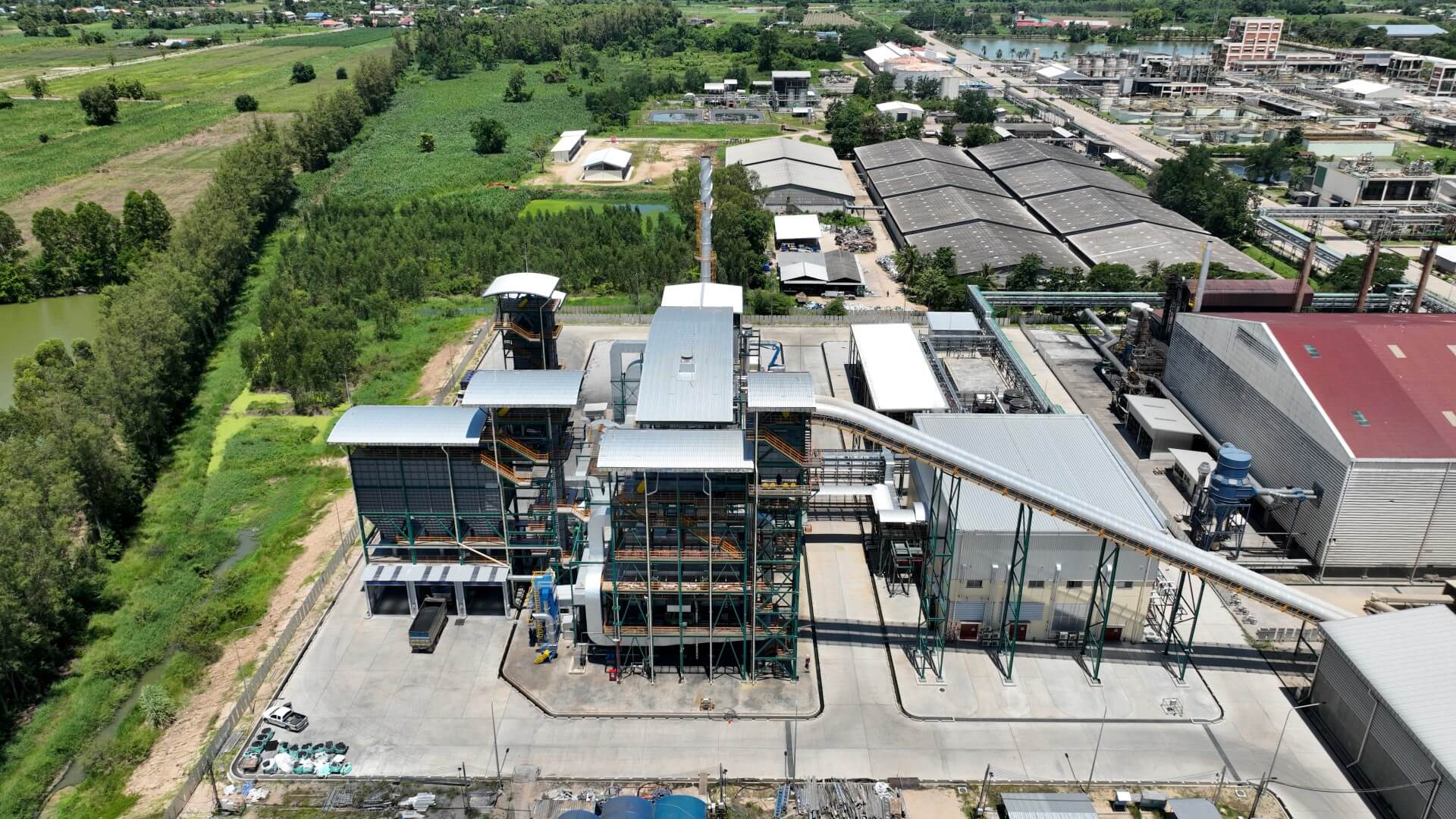
Regarding all efforts, the factory has received many outstanding awards. For example, in 2008, Thailand's Greenhouse Gas Management Organization (Public Organization) certified that the biomass project from using the rice husks in replacement of fuel oil can lower carbon dioxide emissions significantly. The factory has also earned the award of ISO14001 for quality environmental management, including the Green Industry Award Level 4 and many other environmental awards. Mr. Sakakura also stated that the factory is committed to operating the business in compliance with laws & regulations and environmental care within the community, following our intention that "Ajinomoto always grows with Thais."
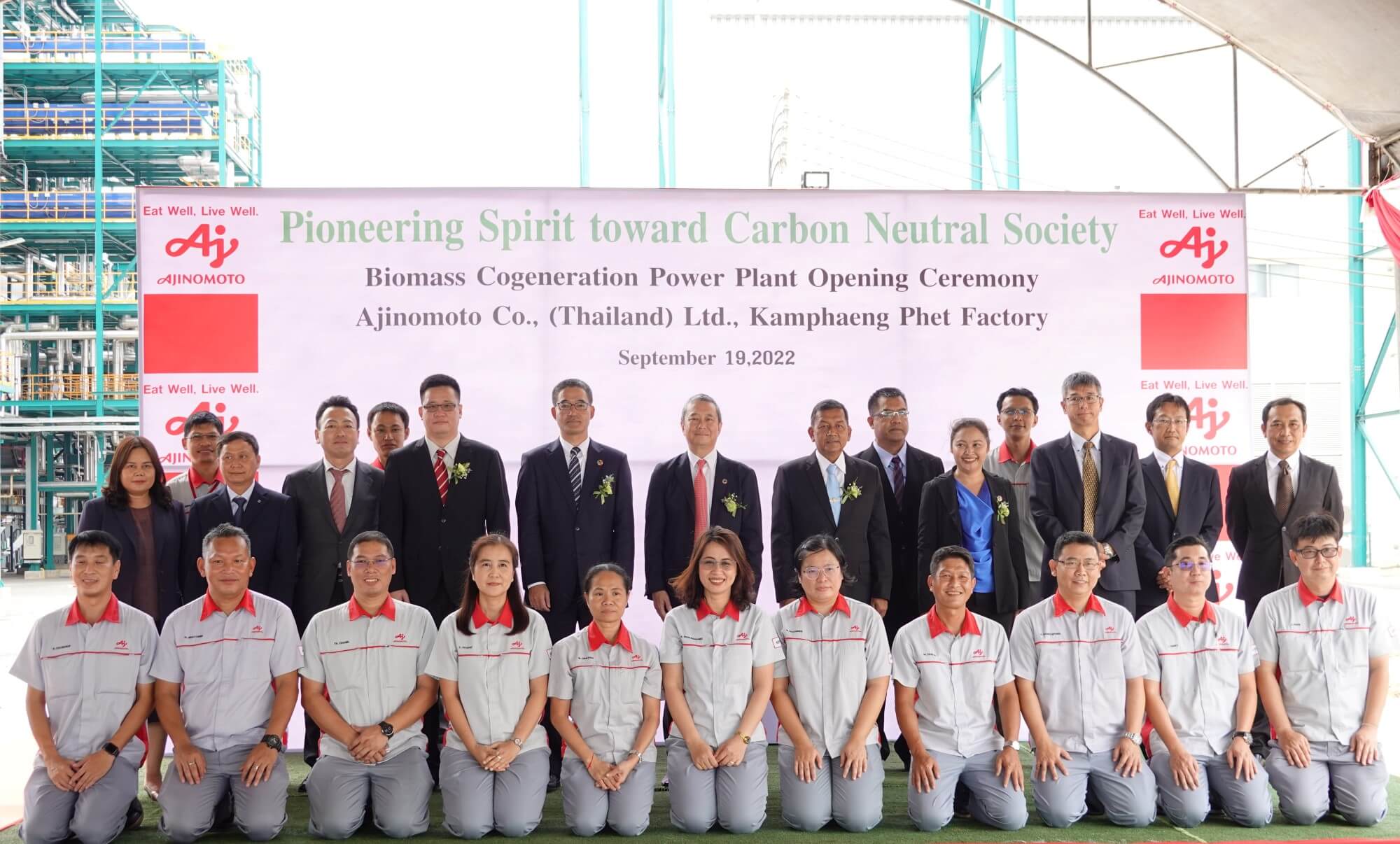
Relate Links

เพราะ “ชัยชนะ” เริ่มต้นจาก “ในครัว”
ชัยชนะ …อาจไม่ได้เริ่มต้นบนสนามแข่งขันเท่านั้น เพราะบางครั้งมันเริ่ม Start จาก “ในครัว” ที่ที่ทุกคำ ถูกปรุงด้วยความตั้งใจ ทุกแรง ถูกส่งต่อจากคนเบื้องหลัง และทุกเสียงเชียร์ คือแรงขับให้พวกเขาสู้จนวินาทีสุดท้าย

Mockumentary – Road to Victory “SEA Games 2025”
จากจุดเล็ก ๆ บนสนามซ้อมของแต่ละคน สู่เวทีใหญ่ที่คนทั้งชาติต่างส่งเสียงเชียร์ นี่คือเส้นทางของ บุ๋มบิ๋ม เตเต้ และกีตาร์ นักกีฬาทีมชาติไทย


Ajinomoto in partnership with Mahidol University and Nature Research Custom Media organizes a Symposium in the Prince Mahidol Award Conference to promote healthy eating and nutritional profiling in a sustainable manner

อายิโนะโมะโต๊ะส่งเสริมกระบวนการ ‘วัฏจักรชีวภาพ’ (Bio-cycle) สู่ไร่กาแฟไทย
สำรวจแนวทางของเบอร์ดี้ในการส่งเสริมความยั่งยืนให้เกษตรกรไทยในไร่กาแฟ

พีระมิดอาหาร เป็นแนวทางและรูปแบบการบริโภคอาหารที่ถูกออกแบบมาให้คนทั่วไปเลือกบริโภคอาหารในแต่ละหมวดหมู่อย่างเหมาะสม แต่ในนักกีฬาที่มีความต้องการสารอาหารที่แตกต่างจากคนทั่วไป

With food waste being a large contributor to the global waste problem. Food Loss & Waste Reduction will help in meeting various Sustainable Development Goals (SDGs) which were set by the United Nations (UN).

Ajinomoto supports coffee farmers for their sustainable productivity
"Birdy®," the no. 1 brand of RTD coffee in Thailand for more than 30 years and one of the quality products under Ajinomoto Co., (Thailand) Ltd., puts an effort into promoting the sustainable productivity of Thai coffee farmers

ดวงดีในพริบตา แค่มี "รสดี" กลับมารอบนี้ เสกโชคใหญ่กว่าเดิม ส่งรหัสเลย!
อย่ารอช้าถ้าไม่อยากพลาดล้าน! "รสดี" กลับมาครั้งนี้ พร้อมเสกโชคใหญ่กว่าเดิม ส่งรหัสในซองเลย

The world is facing a plastic crisis. Plastic pollution is a serious issue of global concern which requires an urgent and international response involving all relevant actors at different levels. Ajinomoto is making every effort to solve plastic waste

According to Ajinomoto Co., (Thailand) Ltd. Head Office has applied for green office certificate evaluation in 2022 to Department of Environmental Quality Promotion (DEQP), Ministry of Natural Resources and Environment (MNRE)

Ajinomoto Co., (Thailand) Ltd. introduced its new product, "amino VITAL™ RED SHOT: Energy Focus," an energy gel in a small sachet with 1,500 mg of amino acids, including 600 mg of BCAAs.

Ajinomoto is certified as member of Private Sector Collective Action Coalition against Corruption (CAC) for the 2nd time

Ajinomoto’s Kamphaeng Phet Factory holds the kick-off meeting of “Environmental Impact Assessment Committee of Biomass Cogeneration Plant”

Ajinomoto’s Pathum Thani Factory receives "The 2022 Excellent Award for Safety, Occupational Health, and Work Environment: National Level" for 7 consecutive years

Ajinomoto wins three outstanding awards in the Thailand 5S Award 2022 competition
Ajinomoto wins three outstanding awards in the Thailand 5S Award 2022 competition. The outstanding awards included the 5S Golden Level Award, the Popular Vote Award, and the Best Presentation Award.

อายิโนะโมะโต๊ะส่งเสริมการใช้พลังงานทางเลือก ผ่านการติดตั้ง ‘หลังคาโซลาร์เซลล์’ ในทุกโรงงานทั่วประเทศ
ถอดบทเรียนความยั่งยืนในการติดตั้งหลังคาโซลาร์เซลล์ของโรงงานในเครือบริษัทอายิโนะโมะโต๊ะ

Ajinomoto maximizes efficient resource management to reduce food waste across the entire value chain for its sustainable production

“Birdy”, Thailand's market leader in ready-to-drink canned coffee, introduces "Birdy Max Roast", a no-sugar-added milk coffee with a right sweetness, and intense taste

Biomass Cogeneration Power Plant
On September 19, 2022, the official opening ceremony of the "Biomass Cogeneration Power Plant" was held at Kamphaeng Phet Factory

Ajinomoto receives the “Eco Factory+SV” awards in 2021: Bronze level and 2022: Golden level
Ajinomoto receives the “Eco Factory+SV” awards in 2021: Bronze level and 2022: Golden level

Ajinomoto welcomes Krist-Perawat to enjoy cooking delicious and healthy menu with fanclub
Ajinomoto Home Cooking welcomed Krist-Perawat, a young and popular actor, to learn how to cook a delicious and healthy menu ‘Salad roll with spicy dip sauce’ along with his fanclub via online channel.

Ajinomoto promotes its “Ajinomoto ecosystem in Thailand” to support Thai farmers and sustainable production systems at the Asia-Pacific Symposium

Ajinomoto maximizes the efficient use of water through the "3Rs" concept, aiming to promote sustainable water resource management

Ajinomoto strives for sustainable plastic and waste management
Ajinomoto as a member of Thailand Business Council for Sustainable Development (TBCSD) and PPP Plastics institute, strongly announced to support and drive for sustainable plastic and waste management to moving towards a low-carbon society of Thailand

Gun Atthaphan enjoys cooking a healthy low-sodium menu with fans at Ajinomoto Home Cooking
"Gun Atthaphan", young Thai actor, enjoys cooking a healthy low-sodium menu with fans at Ajinomoto Home Cooking

3 เหตุผลที่อายิโนะโมะโต๊ะสนับสนุนให้เกษตรกรไทยทำ ‘ประกันภัยสภาพภูมิอากาศ’
ความรู้จักประกันภัยทางภูมิอากาศ และข้อดีที่เกษตรกรไทยจะได้รับ

บริษัท อายิโนะโมะโต๊ะ (ประเทศไทย) จำกัด มุ่งมั่นดำเนินธุรกิจสู่การพัฒนาที่ยั่งยืน (Bio-Circular-Green Economy) ควบคู่ไปกับการส่งเสริมการบริหารจัดการสิ่งแวดล้อมอย่างยั่งยืน โดยล่าสุดได้เปิดตัว “แพลตฟอร์มการเยี่ยมชมโรงงานเสมือนจริงแห่งใหม่”

Ajinomoto supports education for children of journalists
Mr. Thongdee Paso, Managing Director of Ajinomoto Co., (Thailand) Ltd. received an honorary plaque as ‘The Outstanding Supporter’in the category of company who contributes to Thai society and local community



